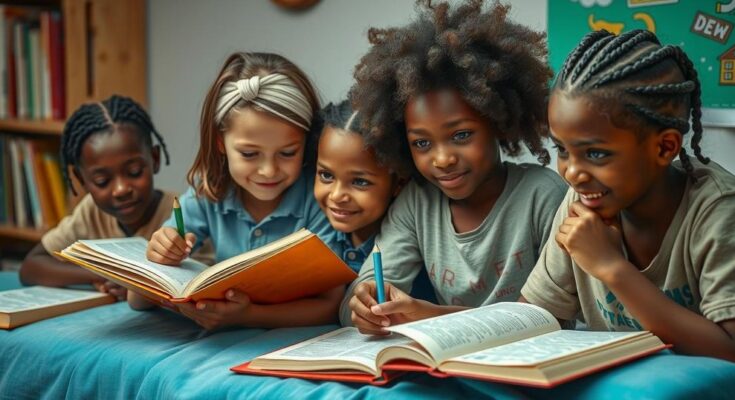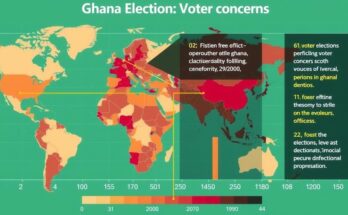In Goma, DR Congo, the Mlimani publishing house seeks to foster a love for reading among local youth by providing affordable books that reflect Congolese culture. Amid economic struggles, initiatives prioritize local authors and create platforms for group discussions, addressing the need for accessible literature and engagement with history. These efforts aim to empower young readers and writers, ultimately revitalizing the cultural landscape in a region long marked by conflict.
In the eastern region of the Democratic Republic of the Congo (DRC), particularly in Goma, local initiatives are emerging to promote literacy and a love for reading among young people. A local collective, including artists and advocates, seeks to enhance access to books, a luxury often viewed as unattainable in one of the world’s poorest nations. Martin Lukongo, a local printer, navigates challenges such as power outages and limited resources to support the production of literature, printing around 60 copies of various works daily from local and international authors.
Despite the ongoing conflicts and economic hardships, the Mlimani publishing house has launched to provide affordable literature, with book prices ranging from $5 to $10, contrasting with the prohibitive prices of imported works. Acknowledging the cultural significance of accessible literature, Mlimani focuses on authors whose works resonate with the lives and experiences of Congolese youth, including notable figures like Denis Mukwege and Frantz Fanon. The publishing house has successfully fostered a catalogue of local authors and creates platforms for discussion through communal reading sessions, engaging young people in meaningful dialogue about their heritage and identity.
Efforts to encourage reading among the youth involve interactive workshops where participants can explore themes relevant to their reality. These sessions enable them to delve into their history, which is often overlooked in formal education, characterized predominantly by European narratives. As local publishers like Mlimani gain momentum, they inspire a resurgence of interest in Congolese literature, cultivating a new generation of readers and writers committed to exploring and celebrating their cultural identity.
Such initiatives reflect a growing movement within the DRC to reclaim cultural narratives, empowering the youth to confront societal issues and envision a constructive future. The vibrancy of these programs serves to highlight the inherent desire for knowledge and connection, reaffirming that books can play a pivotal role in community revitalization amidst challenges.
Overall, the collective actions of Gabonese publishers and activists are essential in promoting literacy, fostering critical thinking, and encouraging young people to engage with literature that reflects their experiences and aspirations as global citizens.
The Democratic Republic of the Congo has faced decades of conflict, significantly impacting its socio-economic landscape. In the context of this enduring turmoil, access to education and literature has diminished, particularly for the youth. The local publishing industry has struggled, with many authors opting for overseas printing due to perceived quality concerns. This scenario has led to a scarcity of affordable literary resources and a misperception that Congolese youth are disinterested in reading. Initiatives like Mlimani aim to counteract these challenges by providing accessible literature that resonates with local culture and history.
In conclusion, the movements advocating for literacy and access to local literature in the Democratic Republic of the Congo exemplify the resilience and aspirations of its youth. Platforms like Mlimani are not only nurturing a love for reading but are also vital in shaping a national narrative that prioritizes Congolese culture and history. As these efforts continue to gain traction, they contribute significantly to the intellectual empowerment of young people in the DRC, facilitating dialogue and action regarding their future.
Original Source: www.france24.com




